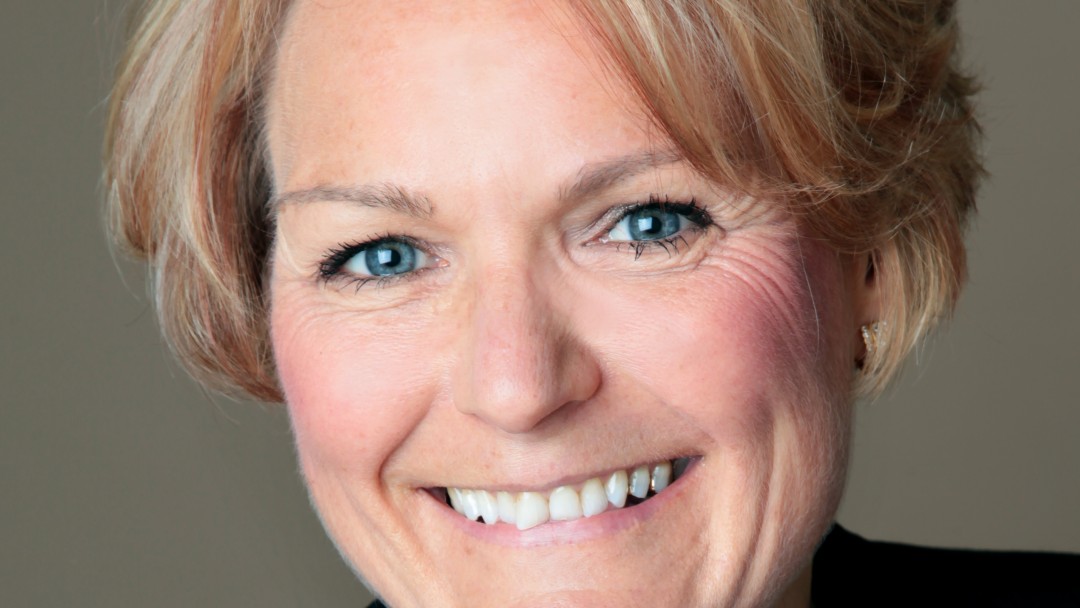News from 2017-07-19 / KfW Development Bank
The transport revolution is just as important as the energy transition

What motivated the German Federal Government to launch TUMI?
There were several reasons: first, the finding that cities around the globe are inundated with traffic. Second, we know that sustainable mobility is an essential element in the pursuit of international climate targets. Finally, local public transport also plays a crucial role in alleviating poverty and fostering inclusion. Because transport is important in many respects, we decided to step up our efforts in this area in the future, which is why we launched TUMI.
What exactly does the German Federal Government expect from TUMI?
The BMZ wants to give sustainability more weight in Germany and elsewhere as one of the key issues of the future. It needs to play a greater role in the donor portfolios than previously. We also want the issue to be a stronger focus of political discussions with our partners. And, of course, we also specifically expect that TUMI will help implement integrated sustainable mobility concepts more quickly in developing countries and emerging economies.
Many people are talking about the global transport revolution we are facing. Some even consider it the next energy transition. How do you see it at the BMZ?
The transport revolution is just as important as the energy transition and has a similar dimension. Both are closely linked.
To what extent are they linked?
The global energy transition will only be successful if we can find an environmentally-friendly way to organise transport. Which is why it is important to align sustainable energy and mobility: I am thinking about solar-powered ferries, cable cars, etc., but also metro lines operated with solar or wind power. There is currently neither great demand for nor great supply of sustainable energy for mobility solutions and no noteworthy financing. This is a critical void that needs to be filled. We need sustainable energy for sustainable mobility.
Do you think that the people responsible around the globe have understood this?
No, I don't. Unfortunately. We also don't know exactly where we stand. This is why we need to take stock of what already exists in developing countries in terms of sustainable mobility, how great the actual need is given the ongoing trend toward urbanisation and how to fill the void as quickly as possible.
There is pressure to act: traffic jams for hours on end have long been part of everyday life in many cities. Why doesn't it all happen faster?
There are various obstacles: financing is one of them. Similar to the energy transition, government stimuli are also needed. Many donors, however, have scaled back their portfolios in infrastructure projects in recent years. It will take a while for investments to pick up again. This is compounded by a shortcoming in the municipalities themselves: many of the current urban planners are – and I exaggerate slightly – trained to design cities for cars. But we need other urban planners who think differently and design integrated transport concepts. I see a big need for different kinds of training in this area. And the mayors of many municipalities need to make bold decisions with a view to the future. This is why it is important that German Development Cooperation forges ahead and advises municipalities in sustainable transport.
It all sounds pretty high tech. Are these kinds of modern modes of transport also suitable for the poor countries in Africa?
Yes, absolutely. Solar-powered cable cars, for example, are extremely robust. They are also suitable for Africa. But cable cars are not enough. We need everything, including buses, trains and cycle paths. The right mode of transport depends on the given situation. It is important that they are sustainable and integrated. This also applies for Africa where cities are growing rapidly and the need is therefore particularly great.
This means that Germany supports all technologies as long as they are sustainable?
Exactly. We are open to everything that is sustainable. As a technology country, we should be at the forefront and encourage innovative solutions that are energy self-sufficient and digitally supported. By energy self-sufficient, I mean systems that function both independently of fossil fuels - meaning renewable - but also independently of conventional energy grids. We can do so much more than we are currently doing. I think it's a great opportunity – for Development Cooperation and for Germany as a technology location. We can enhance our reputation as a government and a country with intelligently operated vehicles.
How long is TUMI scheduled to run and what is its scope?
KfW Development Bank from Germany will already make available around EUR 1 billion in the current fiscal year for investments under the TUMI programme. We hope that this will continue and further increase. The need certainly exists.
What does the German Federal Government expect from KfW when it comes to the issue of mobility?
We expect KfW to provide even more financing for innovative transport concepts. In concrete terms, this means: finding energy self-sufficient systems and encouraging partners to deploy these systems. I also see an urgent need for advisory services in municipalities. KfW could also work more actively in this area, also together with GIZ on a case-by-case basis. The important decisions are made in the municipalities, which is where we need to start.
How important is the issue of transport in the BMZ?
Things are also only really getting underway with us now. The BMZ recognises the significance, accepts the need for action, but a lot more needs to happen in concrete terms. But we're working on it. TUMI is proof.
The interview was conducted by Friederike Bauer

Share page
To share the content of this page with your network, click on one of the icons below.
Note on data protection: When you share content, your personal data is transferred to the selected network.
Data protection
Alternatively, you can also copy the short link: https://www.kfw-entwicklungsbank.de/s/enzBWrMC.Bn_A
Copy link Link copied